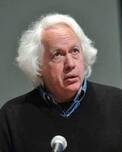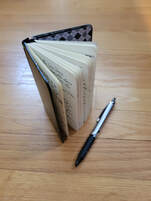weekly column
|
Each week, find a commentary on something connected to verses of Torah or another source of wisdom
|
|
Each week, find a commentary on something connected to verses of Torah or another source of wisdom
|
 Wisdom Wherever You Find It If victims were the only ones who understood oppression, who would help them? Leon Wieseltier Almost everywhere I turn, I bump into something smart that Leon Wieseltier said. That’s not to say that I always agree with him, but I admire his clarity of thought. He belongs in a cohort of public thinkers like Ellen Goodman, Michael Gerson, Michelle Singletary, Ta-Nehisi Coates and George Will (among others) whose ideas demand consideration. This question he posed does not come without context, both spoken and unspoken. But my perspective or yours on those contexts does not change the worth of the question out of any context. Maybe the earliest illustration of this insight is the Biblical story of liberation from Egypt. When we tell the story, especially in the rituals of Passover, we put a lot of emphasis on the standoff between Moses and Pharaoh, presuming them to be proxies for the Israelites and the Egyptians, respectively. And we acknowledge the suffering of the people of Egypt when we spill drops of wine from our otherwise full cup of joy as we recall the plagues that befell all of Egypt (but none of Goshen, where the Israelites lived). However, we generally gloss over a moment in the story that enables the liberated slaves to survive in the wilderness. The Israelites are instructed by God through Moses to go to the Egyptian population and ask for valuables (Exodus 11:2-3) just before the final and most horrifying plague. The Egyptians respond beyond generously, heaping jewels, precious metals, cloth and more on their departing work force. The significance of these gifts is profound in two ways. From a practical point of view, the Egyptian population is facing an economic crisis. The work force is going to disappear overnight, and the economy will have to be reimagined. Giving away the family valuables – the equivalent of emptying their savings accounts – leaves the people on the brink of ruin. For generations, some necessary tasks have been handled by a slave labor force. Now, the people themselves will take over absolutely everything they did, from construction to childcare. Their gold and silver, rubies and sapphires are the reserves that might have made the difference between survival and starvation. From a social point of view, the Egyptian people were collaborators in the oppression of the Israelite people. Let’s give them the benefit of every doubt and say they were benign masters. But they were masters nonetheless, no less complicit in enslavement than the example closer to home in American history. The gifting of their wealth to the departing Israelites – done with “favor,” reports the Bible – indicated however belatedly an acceptance of their culpability. Reparations would not bring back generations of unrealized freedom, never mind babies tossed into the river. But even a belated awakening to the suffering caused by their willingness to accept the system is welcome. I would go so far as to suggest that they just may have come to understand themselves as perpetrators, wherever they were located on the scale of immoral behavior. Even if I am being too charitable, it is clear that their help came as they understood oppression. It is sometimes mystifying that the Bible is kind to the Egyptians after the incident at the Sea. Some tribes – Amalek, Moab, others – are negatively portrayed and perpetually excluded from affection and allyship. But the people responsible for our defining trauma are protected from our wrath and even, at points, embraced. Historians attribute some of that approach to the political circumstances in later years when the text of the Torah was redacted. But the guidance to the morality of the people that emerges is this: perpetrators have the ability to change their lives if they awaken to their transgressions, and that change should be welcome. Otherwise, oppression imprisons victim and victimizer alike. Listen, this is not a suggestion that those who have been injured should be patsies or Pollyannas. A basket of trinkets, even sincerely offered, is not compensation for lost life and dignity. Instead, it is a suggestion that the calcified shell around the human heart can be softened and removed by the witness of the oppressed and – most important – the willingness of oppressors to accept past mistakes and participate in building a better future for their victims.
0 Comments
 Wisdom Wherever You Find It There ain’t much to being a ballplayer, if you’re a ballplayer. Honus Wagner I have the very good fortune of knowing the United States Senate’s biggest baseball fan, Sen. Sherrod Brown of Ohio. Among the books he keeps close at hand is an edition of Baseball Almanac so that he can be prepared to settle any argument over America’s pastime. I don’t remember the exact context in which he pulled out this statement from Honus Wagner (one of the original inductees to the Hall of Fame), but it did not have to do with baseball. Rather, it was a comment on someone who was dismissive of complaints from one of the many constituencies that Sen. Brown serves. The indifferent comment was some version of “how hard can it be?” Wagner’s folksy aphorism probably came in response to someone who was scoffing at his prowess on the field. As a ballplayer, he made the game look effortless. In the process, he likely inspired a gazillion kids to take up the game – especially in Pittsburgh -- and imagine themselves to be the Flying Dutchman. Wagner was surely a natural athlete, but he put in the time necessary to learn to play the game. Actually, he didn’t just learn to play. He learned the game. (Once, when he was called safe when stealing second base, he stepped between the umpire and the objecting shortstop and said to the ump, “Of course I was out. They had me by a foot. You just booted the play, so come on, let's play ball.”) His status as an all-star was earned, unlike the kids who pretended while they tossed a ball in the air in their sandlot. And Wagner was something else, too. He was White. Had he not enjoyed the privilege of being of good Dutch stock, his talent would have gone unnoticed outside of his neighborhood. For some, I guess it’s the definition of lucky. But for those people for whom such “luck” was forestalled by their race, religion or origin, no amount of training or study could have put them in the company of Ty Cobb and Babe Ruth in the first class of Hall of Famers. That wouldn’t come for a generation. Sen. Brown was acknowledging both sides of Wagner’s observation in describing the dullness of his Senate colleague. Whether the object of derision was a group of working-class people or payday borrowers or any of the other underdogs that the senator from Ohio champions, the rebuke was pretty effective. Hard work and natural talent go a long way, but they are all for naught if the road to success is closed to traffic from your neighborhood. If Honus Wagner was anything like his contemporaries, he probably did not consider the matter of privilege when he coined the phrase. Try substituting any occupation and you will see the inside-baseball wisdom of any group of people – plumbers, attorneys, dancers, farmers. It is a put-down to scoffing outsiders and a caution to lazy insiders. But be a little cynical and try it with something less voluntary. It changes things significantly. At my advancing age, I am learning not to be too smug about what I am already. After all, there ain’t much to being me, if you’re me. But I ain’t no ballplayer.  MY NEW PROJECT – Wisdom Wherever You Find It For quite a few years, I have carried around a small black notebook and used it to record wise things I have heard (or read). Mostly, they are words that take me by some small surprise – spontaneous observations, the introduction of an apt quotation in a conversation, or some words that may be practiced but resonate in an important way. Over seven years, I have collected close to 150 such testimonies. That’s either a lot or a little, given the number of conversations I have each day. They range from three words to almost 150, from a sentence to a paragraph, from a tickle to a dagger. But each contains some nugget of truth, most of them unconnected to my usual source of wisdom and inspiration: Jewish text. So for a while – perhaps as long as three years, given the number I have collected so far – I will share one quotation each week with a reflection on why I wanted to write it down and not trust to memory. Most of the speakers are identified by name, not by title. If you like what someone says, look ‘em up and find out more. More of the speakers are men than women. That part was a revelation to me as I prepared my list, so it’s obvious I need to start listening to a more diverse group of people. And if you and I speak or correspond regularly, please don’t be insulted if you don’t turn up in these short essays. As Bishop Larry Campbell said, “Some stories are so intimate that if you tell them, they lose their intimacy.” Somewhere down the line I will reflect on that one. My advice is to get your own little black book and a fine-tipped pen. Then you can preserve wisdom wherever you find it. Coming soon to an inbox near you. |
Archives
October 2023
Categories |